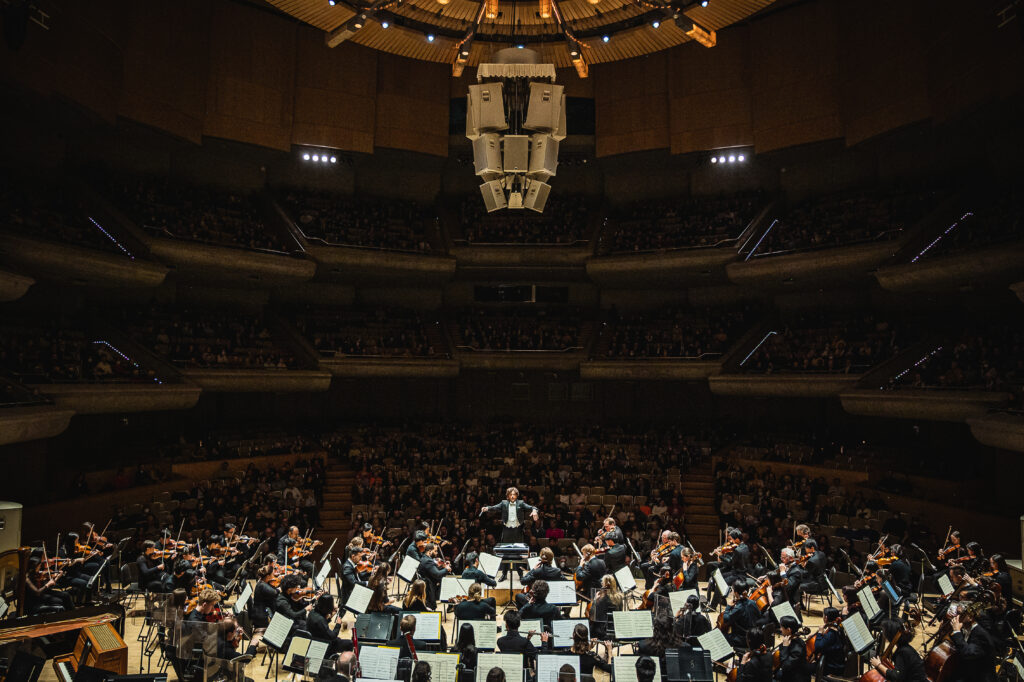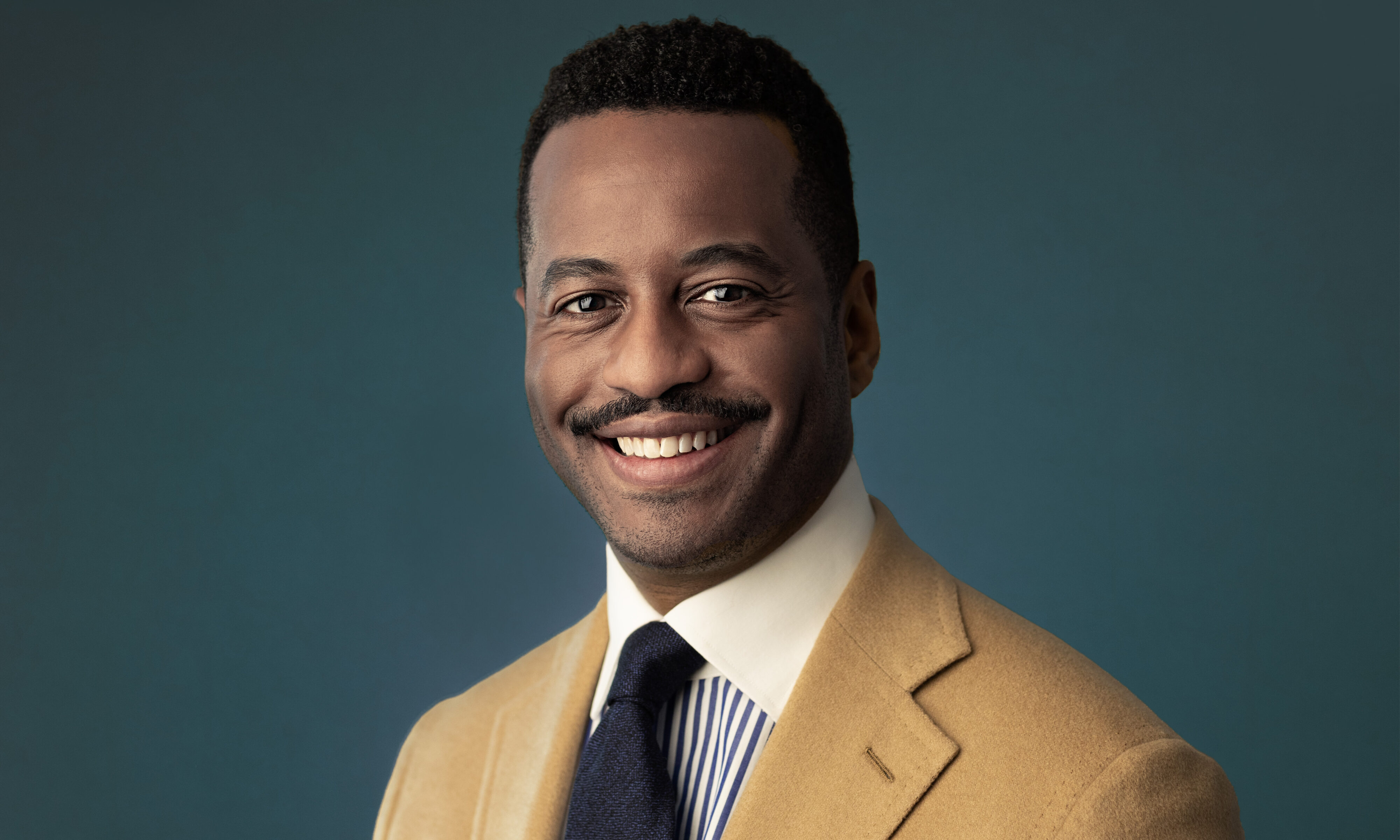Mark Williams has always had a reverence for music. In fourth grade, when it was time for Williams and his classmates to pick the instruments they’d master in music class that year, he brought home a mimeographed sheet detailing all of his options and spent hours deliberating with his family. Would he play the trumpet, percussion, the trombone, the saxophone or the clarinet? “It felt like such an honour that you had the opportunity to choose an instrument,” Williams remembers. “I wanted to play the clarinet so badly.”
Williams’s musical dreams came true that year, and while he didn’t know it at the time, his fourth grade music class became the first step in what has become a long and illustrious career in music. He went on to study horn performance at the Cleveland Institute of Music, lent his talent as Artistic Administrator of the San Francisco Symphony, then spent nearly a decade with The Cleveland Orchestra, climbing the ranks to Chief Artistic and Operations Officer.
In 2022, that journey led Williams to Toronto, where he became the first Black leader of a North American orchestra after taking the helm as CEO of the Toronto Symphony Orchestra (TSO). As leader of the 102-year-old institution, his mission is to create space for that universal yet inarticulable magic that happens when the right music finds the perfect listeners.
And Williams, who grew up listening to the sounds of Bob Marley, Aretha Franklin and Mahalia Jackson, wants to be sure that it’s not just lovers of Mozart for whom TSO’s offerings strike a chord. Under Williams’s leadership, the artistic team’s programming has so far brought famed podcast host Hrishikesh Hirway to explore the nuances of Stravinsky’s The Rite of Spring, and an initiative in support of Indigenous wellbeing featuring Cree composer Andrew Balfour staged its debut performance at Center for Addictions and Mental Health.
Below, Williams talks to 3 about his personal relationship with music, the timelessness of orchestral pieces, and the reasons he’s not surprised that Toronto welcomed him as the first Black leader of a major North American orchestra.

You’re American. What was it about Toronto and having this role in this city that was inspiring to you when you were considering the position?
It was the quality of the orchestra. When I go out and talk about why you should support this orchestra, I’m saying what I really believe. This is a wonderful orchestra. The other piece is, when you think about my positionality, being the first Black person to run a major orchestra anywhere in the world, why not do it in the most diverse city in the world? We’re not perfect, but I think there’s a general understanding here that diversity makes us better. I can even shine a light for those in my own country and say, ‘Hey, there’s a reason I am doing this here and not in the U.S.’
Are you optimistic about the culture around orchestral music? Is it on the right track when it comes to bringing more diverse people into the tent?
Orchestral music, not at the exclusion of other kinds of music, has something timeless about it because it speaks to the human condition. We play pieces that are hundreds of years old, like Mozart’s Requiem. They were thinking about life, death, mortality, and what it all means the same way that we are now. So I think orchestral music, the music I support and work so hard to promote, can speak to all of us.
Now, we have to figure out what the packaging is and how we talk to all different kinds of people to let them know that this music is not just for people who are Austrian, just because Mozart was Austrian. We’ve created a platform to feature artists’ work who simply wouldn’t have been given a platform hundreds of years ago. We have works by women, non-binary composers, composers of colour… This year, we’re doing a suite from a ballet that we helped commission about the Japanese internment in Canada. We can tell that story, and everyone has an opportunity to find connections to it. That makes what we do relevant.
I was surprised by the breadth of artists in your upcoming performances. When I saw that [Grammy-winning punk and indie musician] Devonté Hynes was coming to TSO, I was ecstatic. It genuinely felt like there was programming for me [as someone who doesn’t listen to classical music].
What you’re telling me is that we’re doing the right things. It grabbed you, and it shifted, even if just a millimetre, your view of who we are and who this is for. An orchestra is a wonderful asset to have in your community. Yes, we play Mozart, and we play Beethoven, and we play Brahms, and that music is for everyone, [but] we also played Nightmare Before Christmas [in mid-October], and we played the music of Tina Turner with an amazing singer, Adrienne Warren, who was chosen and coached by Turner. Our musicians also teach and have private studios, so the ecosystem of art that is created around our community is nothing to sneeze at. No matter what kind of music you like, there should be a place for you at the orchestra; I think we’re living up to that.

You’ve just received a record-breaking donation of $15 million dollars CAD from the Barrett Family Foundation, which tells us that TSO has lots of opportunities to grow that ecosystem you just described. We’re also in an era where a young person, it seems, is more likely to turn to their laptop to make a song than they are to pick up a horn. How do you see orchestral music fitting into a world that’s increasingly enamoured with creating and consuming music digitally?
Get the
Three from 3
newsletter
Join our global community of sharp, curious thinkers to receive a carefully curated email of the three most important things to read, see and do this week.
Listen and learn.
Tune into Third Culture Leaders, a podcast hosted by our co-founder and publisher, Muraly Srinarayanathas.
Explore how leaders skillfully navigate multiple cultural landscapes, leveraging their diverse backgrounds to drive innovation and change.
With respect to music-making, there is an expediency to the technology that is different from the experience of the outcome. I recently went to a concert of The National, [they] create incredibly layered music. You go to a performance and there they are with guitars and drums, and the lead singer is walking through the audience and people are going crazy—and there you are in communion with all these people enjoying it. Computers can’t do that. There’s something about being in the room with instruments. When you come and you hear the orchestra, it’s a physical thing. When those horns start playing, it vibrates the air and that vibrates your body—it’s amazing. So I think these two things can work together.
You’ve had such an amazing career already. Is there a moment or person that you now think of as a launchpad for your career trajectory?
It’s hard to trace it back to one person because there have been so many people. I think about my very first music teacher, I think of the first person who hired me at an orchestra—I knew music, but didn’t have a body of work to lean on—and [they] believed in me. I’ve been fortunate that people have seen me, have wanted to support me, and I’m here today because of that. One of the things that I love about my position is that I get the opportunity to do that for others.
This interview has been edited and condensed for clarity.

